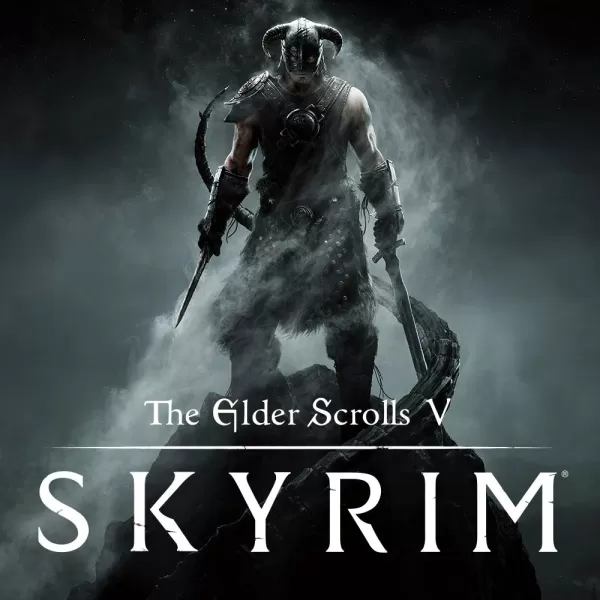Top Bethesda RPGs Ranked: A Gamer's Guide
If there's one developer synonymous with a specific genre, it's Bethesda and their signature style of crafting first-person open-world Western RPGs. Since *The Elder Scrolls: Arena* launched in 1994, Bethesda Game Studios has evolved into a powerhouse in the triple-A gaming industry, amassing a devoted fanbase, impressive sales figures, and even a $7.5 billion acquisition by Microsoft.
Over the years, Bethesda has delivered both triumphant hits and controversial misses. With the recent release of *The Elder Scrolls: Oblivion Remaster*, it’s clear that fans are reevaluating their long-held opinions about the studio’s legacy. It’s the perfect time to revisit and rank Bethesda’s standout RPGs. While anticipation builds for *The Elder Scrolls VI*, its delayed release ensures this list remains relevant for a long time to come.
A Note on Scope
For this ranking, we’re focusing exclusively on Bethesda’s core RPG titles. Spin-offs like *Battlespire* and *Redguard*, as well as mobile games like *Elder Scrolls Blades* and *Fallout Shelter*, won’t make the cut. While we have a soft spot for the charm and humor of *Fallout Shelter*, this list is reserved for the heavyweights—the sprawling, prestige sandboxes that define Bethesda’s legacy.
9: *The Elder Scrolls: Arena*
The first chapter in the series isn’t at the bottom because it’s bad—it’s here because it was a pioneering effort. In 1994, Bethesda was still experimenting with genres like sports and action games. *Arena* started as a medieval gladiator arena simulation before evolving into a first-person RPG with dungeon crawling and sidequests. It’s a fascinating relic of its time, blending elements of *Ultima Underworld* and *Might and Magic* with randomized loot and complex mechanics.
While its clunky movement and outdated combat detract from the experience, *Arena* deserves credit for laying the groundwork for what would become one of gaming’s most beloved franchises. Its flaws only highlight the ambition of a fledgling studio taking bold risks.
8: *Starfield*
As Bethesda’s first major sci-fi endeavor, *Starfield* marked a significant shift in tone and setting. However, its ambitious procedural generation falls flat in comparison to the studio’s mastery of open-world design. With over 1,000 procedurally generated planets, the sheer repetition becomes numbing—especially when every planet feels like a carbon copy of the last.
Unlike *Daggerfall*, which mastered the art of vastness while maintaining intrigue, *Starfield* struggles to create compelling exploration. Its reliance on familiar tropes like abandoned cryo labs and mines grows tiresome quickly. While it’s a visually impressive game, the lack of meaningful depth and creativity holds it back from reaching its potential.
7: *The Elder Scrolls: Daggerfall*
In contrast to *Starfield*, *Daggerfall* proves that Bethesda’s expertise in procedural generation dates back decades. Released in 1997, it’s one of the largest RPGs ever made, with a staggering map size of 80,000 square miles—roughly the size of Great Britain. Despite its sprawling scale, the world feels alive, boasting 15,000 points of interest spread across 4,000 dungeons and 5,000 cities or towns.
Combat remains rudimentary, but the freedom to interact with the world above ground is unmatched. From buying property to joining guilds, *Daggerfall* offers countless ways to engage with its intricate systems. While the visuals and pacing may not appeal to modern audiences, its influence on the RPG genre is undeniable.
6: *Fallout 76*
It might seem odd to include *Fallout 76* in a list of Bethesda’s RPGs, given its shift toward live-service multiplayer mechanics. At launch, the game was plagued by technical issues, missing NPCs, and a steep learning curve. However, updates like *Wastelanders* have injected much-needed depth, adding voiced characters and improving the overall experience.
Despite its rocky start, *Fallout 76* has carved out a niche among fans of the series, particularly following the popularity of the *Fallout* TV show. Its transition to live-service gaming sparked concerns about Bethesda’s commitment to narrative-driven RPGs, but it remains a testament to the brand’s adaptability.
5: *Fallout 4*
Selling over 25 million copies, *Fallout 4* is the most commercially successful game in the series. Its streamlined mechanics and polished presentation make it approachable for newcomers, but at the expense of depth. The dialogue system, in particular, feels restrictive, offering limited choices compared to earlier entries.
Still, *Fallout 4* shines in its exploration of the Commonwealth and its innovative settlement-building mechanics. Character arcs like Nick Valentine’s add emotional weight to the narrative, and expansions like *Far Harbor* capture the spirit of the original *Fallout* games. Despite its flaws, it remains a beloved entry in the franchise.
4: *Fallout 3*
*Fallout 3* marked Bethesda’s bold entry into the *Fallout* universe, blending the series’ anarchic spirit with the studio’s hallmark open-world design. Its opening sequence, starting with your character’s birth and guiding you through Vault 101, sets the stage perfectly for a rich, immersive experience.
While the game’s V.A.T.S. combat system and memorable locations remain highlights, repetitive dungeon crawls and questionable ending mechanics mar the experience. Mods like *The Tale of Two Wastelands* offer a glimpse of what could have been, but the upcoming remake promises to address many of these issues.
3: *The Elder Scrolls IV: Oblivion*
Oblivion serves as the blueprint for modern Bethesda games, influencing titles like *Fallout*, *Starfield*, and countless others. Its guild quests, in particular, remain some of the most memorable side content in the series. However, its dated visuals and awkward progression system hinder its appeal today.
The remastered version addresses many of these concerns, offering improved graphics, a more forgiving leveling system, and additional features like a sprint button. While it may never surpass *Skyrim*, the remaster breathes new life into a classic.
2: *The Elder Scrolls V: Skyrim*
*Skyrim* transformed the *Elder Scrolls* franchise into a global phenomenon, introducing refined mechanics and a breathtaking world. Its combat system, shout powers, and seamless exploration make it a joy to play. While its quest structure lacks the depth of earlier entries, its accessibility cemented its status as one of the best-selling games of all time.
Its visual splendor and tactile feel set it apart from *Oblivion*, but some purists argue that it sacrifices the complexity of older titles for broader appeal. Nevertheless, *Skyrim* remains an unforgettable experience.
1: *The Elder Scrolls III: Morrowind*
Despite its dated presentation, *Morrowind* stands as the pinnacle of the *Elder Scrolls* series. Its lack of quest markers and open-ended design empowers players to shape their own adventures. The freedom to experiment with spells, dialogue, and even NPC interactions creates an unparalleled sense of agency.
Vvardenfell’s unique aesthetic, inspired by works like *The Dark Crystal* and *Dune*, sets it apart from the familiar tropes of later games. While its unforgiving mechanics may alienate some players, *Morrowind* remains a masterpiece of unbridled creativity.
Honorable Mention: *Fallout: New Vegas*
Developed by Obsidian Entertainment, *New Vegas* is widely regarded as the best *Fallout* game. Built on Bethesda’s engine, it combines the series’ traditional depth with modern polish. While it doesn’t appear on this list, its influence is undeniable.

-
 Jan 27,25Roblox: Bike Obby Codes (January 2025) Bike Obby: Unlock Awesome Rewards with These Roblox Codes! Bike Obby, the Roblox cycling obstacle course, lets you earn in-game currency to upgrade your bike, buy boosters, and customize your ride. Mastering the various tracks requires a top-tier bike, and thankfully, these Bike Obby codes deliver
Jan 27,25Roblox: Bike Obby Codes (January 2025) Bike Obby: Unlock Awesome Rewards with These Roblox Codes! Bike Obby, the Roblox cycling obstacle course, lets you earn in-game currency to upgrade your bike, buy boosters, and customize your ride. Mastering the various tracks requires a top-tier bike, and thankfully, these Bike Obby codes deliver -
 Feb 20,25Where to Preorder the Samsung Galaxy S25 and S25 Ultra Smartphones Samsung's Galaxy S25 Series: A Deep Dive into the 2025 Lineup Samsung unveiled its highly anticipated Galaxy S25 series at this year's Unpacked event. The lineup features three models: the Galaxy S25, S25+, and S25 Ultra. Preorders are open now, with shipping commencing February 7th. Samsung's web
Feb 20,25Where to Preorder the Samsung Galaxy S25 and S25 Ultra Smartphones Samsung's Galaxy S25 Series: A Deep Dive into the 2025 Lineup Samsung unveiled its highly anticipated Galaxy S25 series at this year's Unpacked event. The lineup features three models: the Galaxy S25, S25+, and S25 Ultra. Preorders are open now, with shipping commencing February 7th. Samsung's web -
 Jul 02,22Isophyne Debuts as Original Character in Marvel Contest of Champions Kabam introduces a brand-new original character to Marvel Contest of Champions: Isophyne. This unique champion, a fresh creation from Kabam's developers, boasts a striking design reminiscent of the film Avatar, incorporating copper-toned metallic accents. Isophyne's Role in the Contest Isophyne ent
Jul 02,22Isophyne Debuts as Original Character in Marvel Contest of Champions Kabam introduces a brand-new original character to Marvel Contest of Champions: Isophyne. This unique champion, a fresh creation from Kabam's developers, boasts a striking design reminiscent of the film Avatar, incorporating copper-toned metallic accents. Isophyne's Role in the Contest Isophyne ent -
 Jan 11,25Jujutsu Kaisen Phantom Parade: Tier List Revealed This Jujutsu Kaisen Phantom Parade tier list helps free-to-play players prioritize character acquisition. Note that this ranking is subject to change with game updates. Tier List: Tier Characters S Satoru Gojo (The Strongest), Nobara Kugisaki (Girl of Steel), Yuta Okkotsu (Lend Me Your Stren
Jan 11,25Jujutsu Kaisen Phantom Parade: Tier List Revealed This Jujutsu Kaisen Phantom Parade tier list helps free-to-play players prioritize character acquisition. Note that this ranking is subject to change with game updates. Tier List: Tier Characters S Satoru Gojo (The Strongest), Nobara Kugisaki (Girl of Steel), Yuta Okkotsu (Lend Me Your Stren
